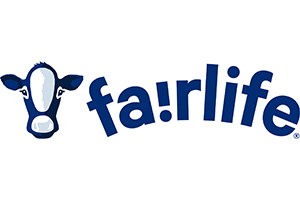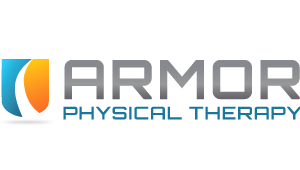The 24-hr National Challenge has taken place every Father’s Day since 1983. According to the website, it’s a race to test both endurance and determination. Cyclists come from all over the world to participate. Athletic Mentors took the time to talk with Team OAM NOW Masters Men Cyclist and 2005 winner Dave Stebbins.
AM: In addition to the 2005 National 24 HR Challenge Middleville MI win with 477.7 miles, you also came in first in your age group in 2013 with 401.1 miles. What’s your goal for this year’s race?
DS: Last year’s race had a 2 hour 47 minute thunder storm delay from 1:15 am until just after 4 am, so everyone’s miles were down last year. This year will be my 11th 24-hour race . I have finished 2nd overall 4 times and 1st in 2005. This year, my goal is the same as each year I’ve competed:
Last year’s race had a 2 hour 47 minute thunder storm delay from 1:15 am until just after 4 am, so everyone’s miles were down last year. This year will be my 11th 24-hour race . I have finished 2nd overall 4 times and 1st in 2005. This year, my goal is the same as each year I’ve competed:
1. Train to the best of my ability.
2. Ride my own race.
3. Stay on the bike for 24 hrs, stop only at check points, and monitor both nutrition and liquids.
4. Be totally prepared for the unexpected.
5. Just to stress it: stay on the bike and do not stop.
AM: Why the 24 Hr challenge? Why this race? What brings you back to it year after year?
DS: Glenn Dik, also on our team [and also racing this year], is why. He did 10 of these before my 1st one and is 6th overall on the all-time miles list. I like to do this race because it is local. It may not be the biggest, but it’s by far the hardest thing I have ever done. So many Ironman Triathletes talk about the full Ironman to which I say challenge yourself; try the 24-hr. At least the Ironman competitor gets to go and sleep after the race. 24-hr speaks for itself. The personal challenge of fighting with mother nature (age) and seeing how we can stay moving on the bike for 24hrs keeps me coming back every few years.
AM: What surprised you the first time? Anything that still surprises you?
DS: The first one I did, honestly, I rode 366 miles. I was surprised by what the leaders did…they road 470. I just stuck with it. In 2005, I did 477.7. That first year, I was in awe that they put 100 miles on me. I was new so I stopped a lot, but I was so impressed by them and by what the human body can do when we push it.
AM: How do you prepare/train for this race? How long? Any particular training strategies (ones that you’d care to share?)
DS: Strength training. Cross-training: run, swim, cycle (a lot). Recovery, nutrition, and rest are equally important. Train, eat, sleep, recover. Repeat. So much of this, and racing, is mental. I keep things positive, and training one’s self to do that is crucial. I train my mind as hard as I train my body. I’m going to use this word, tired, but I don’t feel it. I tell myself I am not going to get tired. When tired comes, or fatigue, just the word in my head, I literally see a stop sign that says no, that’s not going to happen. I think about the hiker who got trapped, who cut his arm off, Aron Ralston. How did he ever get himself out? How did he eat? I’m on a bike; I have food. How did he do that? If he could do that…if he can survive that, I can do this. I use the willpower of others to get through my hard times. I’ve learned what the mind is capable of doing when you train it to survive and achieve. I do a lot of training, but really, it is both physical and mental and both are equally important.
AM: I think a lot of people might find the overnight piece daunting. How do you keep going through the night? Do you incorporate lack of sleep into your training cycle?
DS: Oh! the night is the best part. We ride around in a big 7.5 mile loop and get checked every loop, about every 22-23 minutes. My crew is up, keeping tabs on my nutrition and body health. The mental game, at that point, is locked in. I don’t think about time, just the consistent loop time my crew is giving me. I don’t think of it as 24 hours; I think it’s an adventure. A day adventure and a night adventure. On the first day, the first check point at Lake Odessa (34 miles) and so I look forward to that. Then, the 70 mile checkpoint. When it starts, my goal is stay healthy and to constantly self-check. I don’t wear a watch. I don’t want to know what time is.
If you think of “24 hours on a bike,” it’s hard. It’s actually really fun to see the sun go down and get into a groove on the 7.5. Before I know it, there’s light to the east signaling the break of dawn. One of my favorite things is to listen for the 1st bird chirp at around 4:15am. Then I know the sun is on its way and I feel better than ever. I do not incorporate the lack of sleep into my training, but I am very well-rested prior to the event. Also, I can’t say this enough, my crew is outstanding at keeping me both upbeat and focused.
AM: Who is your support crew?
DS: My wife of 31 years, Denise, my younger brother, Dan, and both my oldest and youngest daughters, Lindsey and Ashley, are my pit crew for this race. They do such a great job and do a lot of the thinking for me. I know what I have to do on the bike, but other than that, they’re taking care of everything. Night time is hard. I get a bit punch drunk. When you’re riding and coming in and you want some Clif Blocks and say I want cherry, that word doesn’t come. I can maybe manage “red” or I point or grab to the one I want…they know this. They are ready for me when I come in. I couldn’t do this without them. I also couldn’t do it without our amazing sponsors, Athletic Mentors, support from teammates…I’m on the bike, but so many other people make this happen. I’m very grateful.
AM: Do you work with a coach?
DS: I ride with [OAM NOW Teammate] Glen on Wednesday night at the Grattan Raceway which is a closed course May through August. Other than that I don’t train with anyone. As we’ve gotten older, we do our own thing. I worked with a coach when I was younger, training for Ironman Kona. I liked that he had some great stuff to offer, but there was a lot of pressure and time constraints that don’t work for me anymore. I learned from getting older that I can’t do the volume I used to; I need more rest. I also have a lot of people around me to ask for advice: teammates, Athletic Mentors; it’s the best of both worlds. I guess I’ve gotten old school in that regard. But, if someone’s new to this…get a coach. There’s a lot to learn.
AM: Do you fuel for this race differently? How do you fuel?
DS: Depending on the weather, about 16 24-oz water bottles per hour and 1st Endurance EFS. I’m also taking in Clif Blocks and Ensure nutr ition shakes(milk chocolate). I try to take in about 150 to 250 calories per hour, sometimes more and sometimes less. The Ensure and water work best for me.
ition shakes(milk chocolate). I try to take in about 150 to 250 calories per hour, sometimes more and sometimes less. The Ensure and water work best for me.
AM: What part do you most look forward to?
DS: The start. From the national anthem to the bag pipes. The count down to 8 am Saturday. It’s the moment I wait for. It’s a very emotional start. The morning sky is bright blue, the sun is up, the national anthem plays; there aren’t many dry eyes. After the emotions subside, I start thinking about all the tools I practice with Glenn…and I look forward to Lake Odessa [the first checkpoint].
AM: What do you find is the hardest part of the race?
DS: (laughing) Driving home at 10 am Sunday.
AM: What is the biggest training or racing obstacle?
DS: The weather for training. We train in 40 to 60 degree weather, but race day it’s closer to 85 to 90 degrees. It makes it tough, but it’s equally unfair for all. As for obstacles during the race? Crashes. Again, train for the unexpected.
AM: Crashes….do they happen often?
DS: Last year, just before 70 mile mark, 4 guys went down in back of me. Crashes happen every year so you have to be safe. Maybe after the 3rd check point, when it’s 10 guys riding together it’s a bit easier than the 30-40 we start with. I don’t stay out front then, but stay towards the back of the pack until it drops, in the evening, to around 10-15 riders. Those are the experienced guys and the chances decrease. But, as I’ve said, you have to train for, and be ready for, the unexpected.
AM: What’s your recovery routine like?
DS: It takes me about 3-4 weeks to fully recover. The first 2-3 days are harder than the race. Monday is tough. I take off from work. My legs swell pretty badly. I take ice baths on Monday 3-4 times which helps a bit. I eat on Monday. A lot. On Tuesday I try to swim in the morning. (Laughs) It’s a bit of a joke as I can hardly move. Every day it gets a bit better.
AM: What advice might you offer to cyclists considering this challenge?
DS: Give it a try. You learn so much about your body and mind and what both are capable of doing. Enjoy the process. Enjoy the training. Once it becomes work and you don’t want to train, you’re not going to have fun. Sometimes you have bad days, but you have to try to enjoy the process. It’s not a race, as I said, it’s an adventure. Something happens different every year…something unexpected happens every year…that makes it fun. If you haven’t done it and you want to…have fun. Enjoy the time. It’s 24-hrs you’ll never forget.
The 24-hr National Challenge takes place June 14-15 this year in Middleville, Michigan










